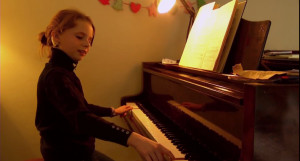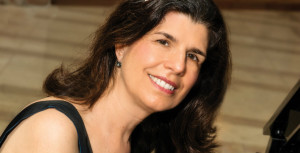A
s I did my research for my new book, Shouting Won’t Help, and talked to many people with midlife hearing loss, a pattern of similarities became apparent. Many had shared common emotional reactions to their loss, though they had dealt with them in varying ways. Eventually I chose a dozen to profile. Each profile is set off between chapters under the rubric Voices.
Their backgrounds and professions differ, as do the causes and severity of their hearing loss. Some have accepted the fact of their loss, philosophically or sometimes bitterly, while others are still coming to terms with it. Their stories illuminate mine, and cumulatively produce a portrait of the broad and devastating effect of hearing loss.
A disproportionate number of those profiled were musicians. Richard Einhorn is a composer whose works include Voices of Light, which has been performed by many major symphony orchestras. Jay Alan Zimmerman is also composer, whose Incredibly Deaf Musical tells the story of his progressive hearing loss. Isaiah Jackson is a conductor with a long resume that includes a stint as music director of the Royal Ballet at Covent Garden. He now teaches conducting at the Berklee College of Music.
The following is the profile of Ben Luxon.
* * * *
T
he British opera singer Ben Luxon denied his hearing loss until he couldn’t anymore. That moment happened to be during a recital. The program was a Schubert cycle. “I sang the first song,” he told me. “I could see from people’s faces… hmmm, something’s not good here, and then the second song, I couldn’t even start. This was the pattern for the next five or six songs, until at last I just had to stop and say to people, ‘I can’t submit you or myself to this any longer, something is seriously wrong with my hearing,’ and so that was that. That was on a Friday evening.” By Sunday he was totally deaf in one ear and sound was seriously distorted in the other.
I visited Luxon in his comfortable kitchen in rural Massachusetts, birds on the feeder just outside the window. Luxon had continued to sing for some time, he said that day, even after he began to notice that things seemed out of whack. He was cast as Papageno in The Magic Flute for the English National Opera. During rehearsals the conductor mentioned that his voice was “a little sharp” in places, just above the correct pitch, but ENO wanted him to do the role anyway. “I couldn’t hear the orchestra—the orchestra. The orchestra sounded like people banging on big iron pipes in the bottom of a pit, it was just so distorted,” he said. “And the soprano, when I was singing the duet with her, that beautiful duet in Act 1, once she got above an F or G, her voice split like a cat yowling. It went in two directions, and I thought, ‘My God this is really wild, bizarre.’”
A few months later, he was scheduled to sing the Schubert recital. Warming up before the concert, he said to the pianist, “I have no idea… I can’t hear where the pitch is.” He didn’t know where to sing. He stood beside the keyboard; he tried standing at the end of the piano; he moved around, looking for the maximum connection with the sounds from the piano. They went ahead with the concert anyway: “I thought for the concert, with a little adrenaline I’d probably be okay.”
He wasn’t.
He spent the following year being treated with steroids and a treatment involving chemotherapy. He got a hearing aid, and with 55 percent of the hearing left in his other ear, went back to his professional career on a reduced schedule. Eventually, after another two years, the stress and isolation of not being able to hear what was going on around him in a performance proved too daunting. He stopped singing.
These days, he’s turned to recitations and acting. To anticipate his cues, he roughly memorizes the whole play, so he can “feel” the length of speeches. We talked that afternoon for several hours, and quite often, to illustrate a point, he would break into song—a Rex Harrison half-singing/half-talking voice rather than his full-throttle operatic voice. With the aid of a cochlear implant and a hearing aid, in addition to his recitations and acting, he also teaches.
Luxon said he can hear the quality of a voice—he can tell whether a singer is using the voice properly, breathing properly, and so on—but not the pitch. “I had a lesson this morning with a very good singer, very nice. And so I’m perfectly fine. I play the piano as well. Hearing harmonics on the piano is difficult and I can play wrong notes all over the place, but I’m usually blissfully unaware.”
Luxon and his wife, Susie Crofut, have created a magical garden around their big house, which is a welcoming sprawl of rooms. On the day I visited, the house was full of children and grandchildren from their combined families. Susie’s late husband, the singer and composer Bill Crofut, whose music encompassed jazz and folk, had as part of his eclectic career collaborated with Ben, among other classical musicians. It is a musical family, and Ben participates in family music-making, but not using his operatic voice.
“I hear the birds,” he said. “I was sitting out on the deck the other day, it was so beautiful, and there was this damn bird that was going [he imitates the bird whistle], so I can hear the pitch and imitate it pretty accurately, but I couldn’t locate the bird. I didn’t know where to look.”
He laughed as he told me this, his Cornish accent and cheerful resilient personality making everything seem really, actually, not so bad. “Location is gone, for anything. If I hear Susie calling… sometimes I get flashes of mini-fury, ‘For God’s sake! Where are you? Are you bloody well upstairs or downstairs!’” He laughs again. “That’s a funny one.”
He told me he had worked with a man in Boston named Geoff Plant, who had helped him recover his speech perception. Plant often works with musicians. “We did an experiment where I tried to sing properly with fairly full voice, and I sang all over the place. But then, if I sang lightly and fairly quickly, I sang in tune. I was convinced I was singing in tune both times.” He urged me to visit Plant, and to watch him work.
Ben Luxon has suffered a major setback; his singing career is over, the turn his professional life has taken is permanent. But of all the people I met while researching this book, he is the only one—myself included, I think—who has truly come to that elusive state of acceptance.





WICH HEARING AID HELPED YOU ?
I currently wear Phonak hearing aids. Best way to start figuring out which hearing aid is best for you is to visit an audiologist in your area and get your hearing tested. Sometimes it can be difficult to find the right audiologist, so a good way to start is to ask other people who have hearing loss. I recommend checking out events put on by your local Hearing Loss Association of America chapter. Main website is http://www.hearingloss.org. Good luck!
Was a wonderful singer. Must have been the hardest thing to accept. Worked with him several times in the past.